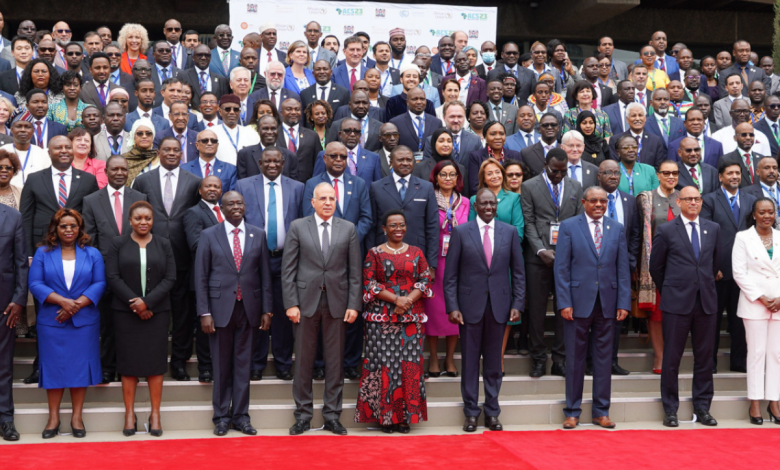Africa Climate Week 2023 could popularize ‘Active Mobility’

The same scene plays out every morning. As the sun rises in Addis Ababa, thousands of commuters hop on the city’s light rail line or search for space on public minibuses.
Bicycles are notably absent on the streets of the bustling capital of Ethiopia. But Ephrem Bekele Woldeyesus wants to change that – wishing to improve the environment and people’s health.
The 34-year-old co-founded Along the Way, a community organisation that aims to make cycling more common, in part to counter a climate crisis that’s already sowing chaos worldwide.
“But here, people think [cycling is] not safe. There are too many cars,” said Woldeyesus, who is among a growing number of officials and campaigners advocating for cycling and walking.
Roads across African cities are notoriously dangerous for cyclists and pedestrians, with a lack of infrastructure, bad driving and poor urban planning largely blamed for the fatalities.
Non-Motorised Transport Strategy Bringing Changes
Across much of the continent of 1.3 billion, roads remain in perilous condition. Despite having just 3% of the world’s registered vehicles, Africa is home to 20% of global road traffic deaths.
But now, an increasing number of Ethiopians across different industries and positions are looking for ways to make more people choose what’s known as ‘Active Mobility’.
With support from the UN Environment Programme, the country has launched an ambitious effort to push citizens toward cycling and walking while avoiding soot-spewing vehicles.
The centrepiece of the push is the Non-Motorised Transport Strategy. Launched in 2020, it sets a number of 10-year targets to encourage more Ethiopians to take the two-wheel plunge.
The strategy aims to construct 3 km of footpaths and 2 km of bike paths per 10,000 people, while substantially reducing fatalities in road traffic incidents.
Urban Transport Grabbing Limelight At Africa Climate Week
Additionally, Ethiopia has also launched road safety and transport plans while forging a partnership with its private sector to improve walking and cycling infrastructure.
Nevertheless, the active mobility movement is swiftly proliferating across Africa, with an increasing number of countries developing policies and calling for adequate safety standards.
Urban transport is expected to grab the limelight at the ongoing Africa Climate Week 2023 in Nairobi, Kenya. The four-day event is set to conclude on September 8.
It’s a regional collaboration platform held in parallel to the Africa Climate Summit, also hosted by Kenya. The latter started the same day as the ACW and will conclude on September 6.
Also Read: AFCIA helps Philippines indigenous communities forge sustainable solutions
Attended by policymakers, practitioners, business and civil society representatives, the ACW is designed to build momentum ahead of the UN Climate Change Conference starting November.



